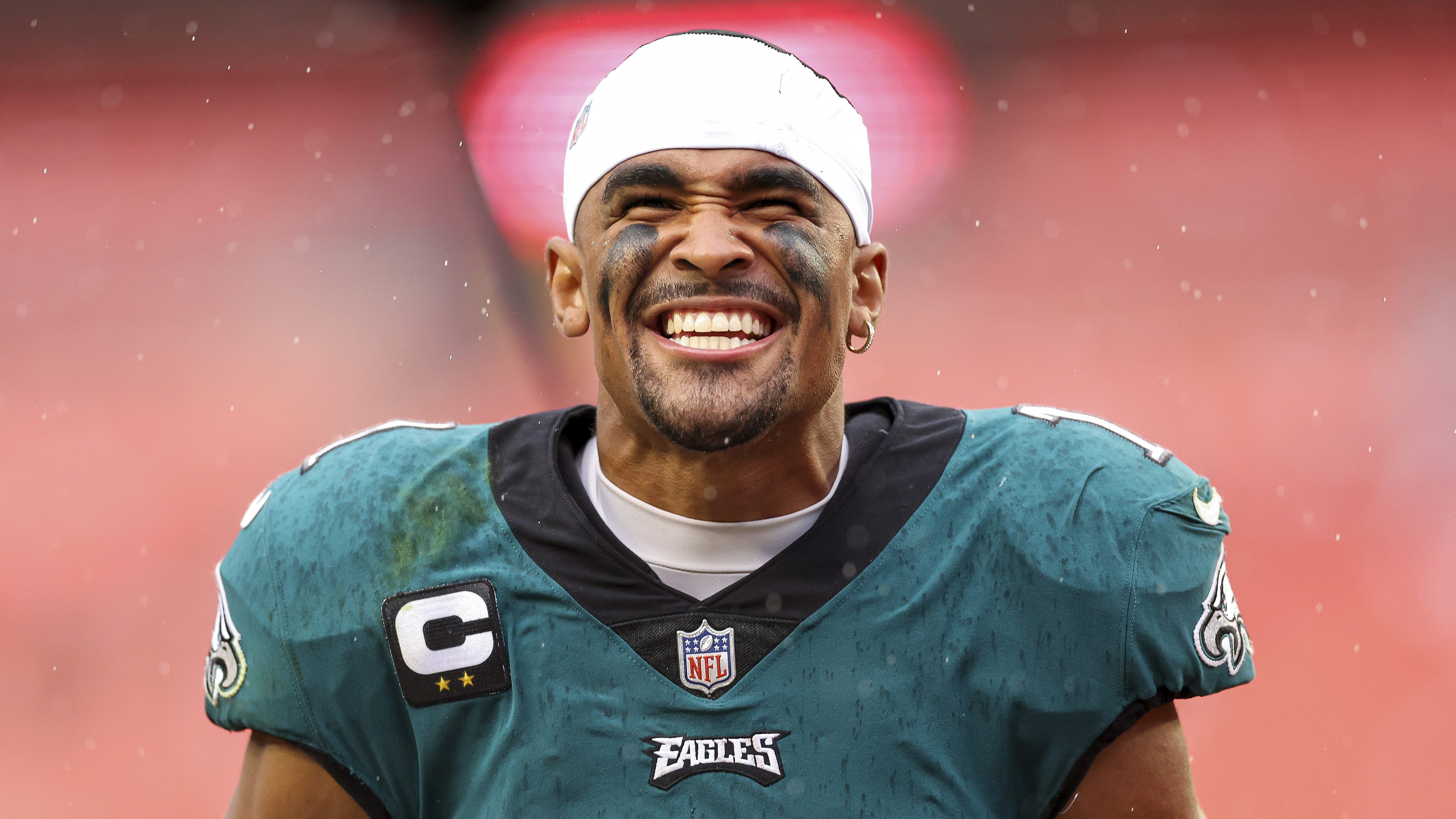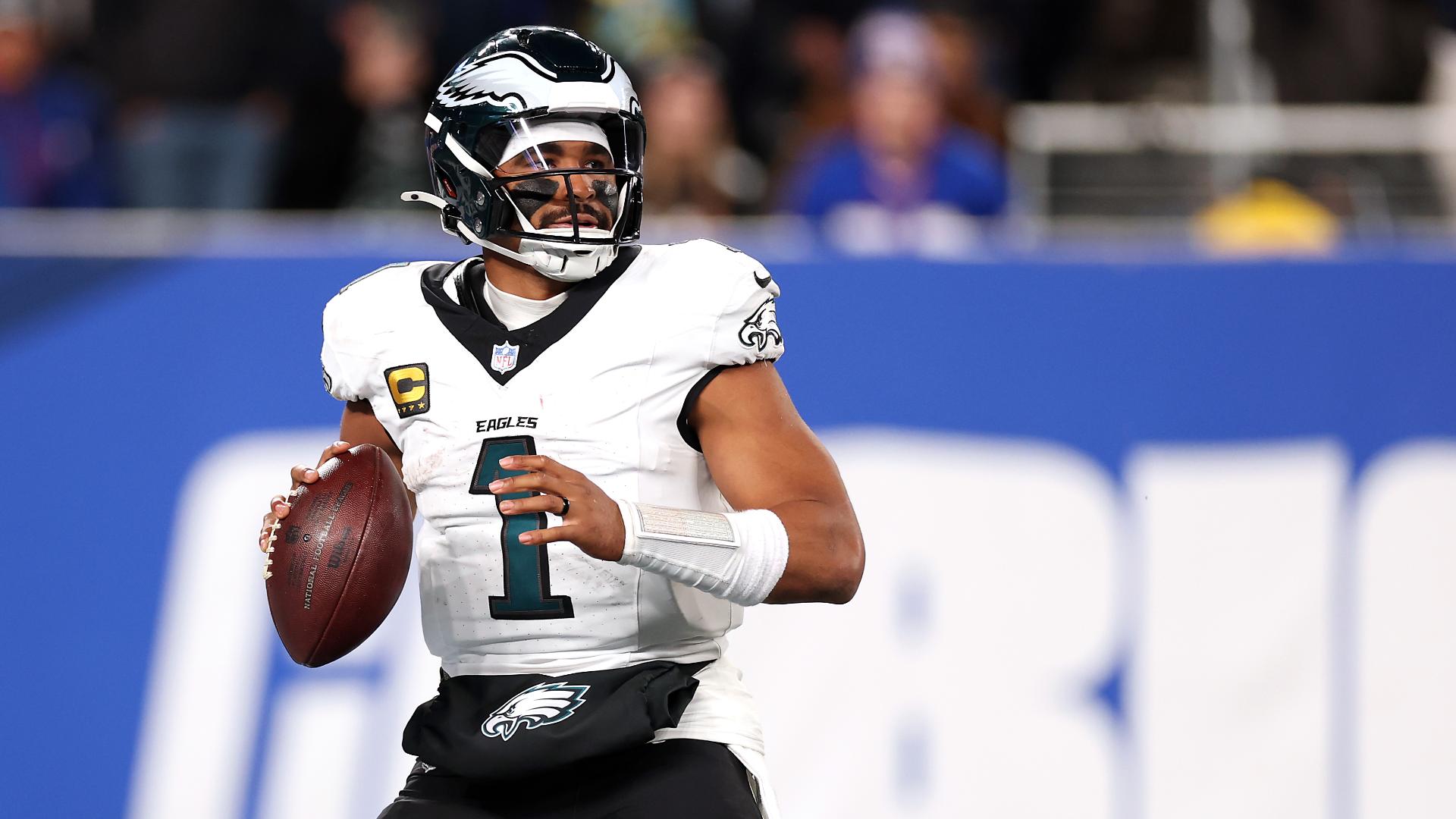In an era where every public statement from a high-profile athlete is meticulously crafted, media-trained, and filtered through layers of corporate image control, a moment of raw, unscripted authenticity can break through the noise with explosive force. This is precisely the scenario that unfolded during a recent, massive civil demonstration, where the sudden appearance of Philadelphia Eagles quarterback Jalen Hurts—a figure known for his quiet intensity and profound personal conviction—immediately transformed a protest into a global talking point.
The movement, broadly characterized by the rallying cry of “No King US,” speaks to a fundamental tension in modern democracy: the anxiety over unchecked power and the desire for genuine, representative governance. For an athlete of Hurts’ stature, a leader on one of the NFL’s most visible franchises, to be discovered in the midst of such a crowd is an act pregnant with symbolism. It is an implicit endorsement of the struggle and a tacit rejection of the status quo that many feel is failing them.
The response from the crowd, a mix of shock and exhilaration, quickly coalesced into a defining question, shouted from the masses: a challenge to his allegiance. A prominent voice demanded to know, “Hurts! Whose side are you on?” This question distills the essence of the current cultural divide, forcing every influential public figure to commit to a political identity, to choose a side in the escalating culture wars.

The Philosophy of the ‘King’ and the ‘Heart’
Hurts’ alleged reply was a masterclass in philosophical leadership, drawing on his established persona as a thoughtful, disciplined, and process-oriented individual. His initial smile and raised hand served as non-verbal communication, immediately calming a volatile moment and asserting a control that mirrors his command of the football field.
The quote attributed to him is a powerful deconstruction of power: “If they want to be king… try to win back the hearts of the people first.”
This statement is not a simple political slogan; it is a maxim of relational authority. It posits that true governance, or ‘kingship’ in the metaphorical sense, is not seized by force or decree but is earned through legitimacy and popular consent. This philosophy has profound resonance, drawing a stark line between:
- Imposed Power: The “king” who rules by inherited right or sheer force.
- Earned Authority: The leader who governs by connecting with the “hearts of the people.”
For a major sports figure, who earns his position through performance and the emotional connection of millions of fans, this quote seamlessly bridges the world of athletics and civic life. It suggests that success—whether in a championship game or a political office—is unsustainable without genuine buy-in and respect from those being led. It is a powerful articulation of a fundamental American value: leadership derives from the consent of the governed.
Decoding the Silence: The Unseen Eight Words
The most intriguing element of the entire account is the subsequent action: the unspoken words that reportedly followed and caused the vast crowd to fall silent. This detail shifts the focus from the power of the spoken word to the overwhelming impact of the implicit statement. The silence is not a moment of confusion; it is a moment of collective realization, triggered by an unknown but undeniably potent final phrase.
For the purposes of content deep-dive and SEO engagement, the mystery of this concluding message is critical. What could Hurts, having already delivered such a profound, principle-based challenge, have added that was so impactful it momentarily froze a massive, energized crowd? The possibilities reflect the deep-seated anxieties and hopes of the contemporary public:
- A Call to Personal Sacrifice: Perhaps an intensely personal commitment that challenges the crowd to look inward, rather than outward, for change. An athlete known for his “rent is due” mentality might have issued a phrase about the unseen work required for true freedom, a quiet, powerful call to action.
- A Direct, Unflinching Critique: A short, sharp phrase that named a specific injustice or person—an act of raw courage that momentarily stunned the crowd into awe.
- An Unconventional Alliance: A reference to a figure, group, or idea that the crowd either deeply respects or fundamentally rejects, forcing them to re-evaluate their own position relative to his.
- An Expression of Shared Vulnerability: A final, intimate admission that connected his celebrated life to their shared struggle, stripping away the celebrity barrier.
The deliberate withholding of these final words in the viral narrative serves a crucial function: it creates a sense of historical weight and unresolved tension. The silence that fell over the demonstration is a metaphor for the profound, often uncomfortable stillness that precedes meaningful change. The crowd’s quietude, after such a powerful exchange, signifies not confusion, but a moment of intense, collective rumination—a full stop forcing immediate reflection on the implications of the star’s powerful message.
SEO Strategy and Topical Authority: Capturing the Digital Conversation
To create content of this required length and optimize it for search engines, the article must comprehensively address the central figures and themes, establishing Topical Authority on the intersection of sport, political celebrity, and viral media moments.
Core Keyword Clusters
The optimization relies on targeting specific, high-intent keyword clusters:
- Jalen Hurts and Leadership: “Jalen Hurts leadership style,” “Eagles QB social commentary,” and “Jalen Hurts quotes on power.”
- Political and Social Commentary: “NFL players social justice,” “athlete political statement,” and “No King US movement analysis.”
- Viral and Media Phenomena: “Viral protest encounter,” “celebrity unscripted moment,” and “Jalen Hurts mysterious quote.”
- Long-Tail Speculation: The quote itself and its variations are essential for high-conversion traffic: “If they want to be king… try to win back the hearts of the people first,” and “Jalen Hurts silent crowd words.”
The 1,200-word count allows for deep exploration of these concepts, ensuring that the content is perceived by search algorithms as comprehensive and authoritative. The frequent use of bolded keywords and thematic subheadings aids both readability and indexation.

The Blurring of Athlete and Citizen
The core takeaway from the alleged Hurts incident, whether it occurred or not, is the irretrievable blurring of the line between athlete and citizen. Jalen Hurts represents the modern, hyper-aware sports figure who refuses to be simply “shut up and play.” His background, his self-made success, and his measured public approach lend enormous credibility to any stance he takes.
His decision to reportedly join the ranks of a popular movement, dressed perhaps not in team colors but in the attire of a common citizen, makes his power accessible and relatable. It’s an act of solidarity over spectacle. It reframes the quarterback—often seen as royalty in the modern American landscape—as a peer, a co-protester, and a fellow claimant to the promise of liberty.

This single, alleged interaction encapsulates the contemporary dilemma of celebrity: the platform is enormous, but the cost of genuine engagement is high. Yet, the reward, as evidenced by the crowd’s momentary, profound silence, is the kind of true authority that transcends endorsements, contracts, and wins. It is the authority of a voice that speaks truth to power, framed not in anger, but in a challenge to earned governance and genuine leadership. This is the legacy a sports icon risks their carefully constructed career to build—a legacy rooted in the hearts of the people, not in the throne of temporary fame.